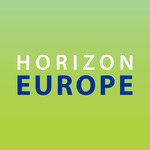








MULTIFUTURES – Multidimensional Transition Pathway Analysis for Sustainable Futures: Exploring Alternative Paradigms and Broadening Policy Options through Innovative Scenario Development
MULTIFUTURES – Sürdürülebilir Gelecekler için Çok Boyutlu Geçiş Yolu Analizi: Yenilikçi Senaryo Geliştirme Yoluyla Alternatif Paradigmaların Keşfedilmesi ve Politika Seçeneklerinin Genişletilmesi
In a world grappling with the urgency of climate change and social inequality, traditional policy frameworks often fall short. The need for innovative solutions to foster sustainable societies has never been more pressing. In this context, the EU-funded MultiFutures project aims to integrate alternative economic paradigms into the transition scenarios. By doing so, the project pioneers innovative solutions. Specifically, it will use AI language tools, stakeholder engagement, and a citizen survey to map, quantify, and refine alternative futures. This approach enables policymakers to navigate trade-offs, address negative impacts, and implement policies aligned with climate-neutrality, justice, and resilience. Overall, MultiFutures equips decision-makers with a robust understanding of alternative paradigms, offering a diverse toolkit for progress.
RAISE – Recognition and Acknowledgement of Injustice to Strengthen Equality
RAISE – Eşitliği Güçlendirmek için Adaletsizliğin Tanınması ve Kabul Edilmesi
Structural racism exists in the political, social, economic and educational systems in society. This can be seen in the under-representation of minorities in many fields, as well as pay gaps and unequal opportunities. The EU-funded RAISE project will generate new insights on structural racism in Europe by exploring the social constructions of group demarcations. Specifically, it will focus on the boundary-making processes that are at the root of both structural and individual xenophobia and racism. It will empirically map these processes and show what responses can best support equality. RAISE will test the assumption that structural racism can be reduced if people (and the institutions they operate in) are aware of these underlying boundary-making processes.
CURE – Conceptualizing and Understanding Resistance against Energy Policy and Technology
CURE – Enerji Politikası ve Teknolojisine Karşı Direnişi Kavramsallaştırmak ve Anlamak
During 2019 and 2020 a substantial police force has been engaged in protecting the construction site of a wind-turbine plant from people resisting the implementation, at the small island Frøya in Mid-Norway. The situation is similar at several constructing sites in Norway. The protesters claim they have to bear the cost of the green shift locally while others make profit from it, and that their democratic rights are being violated, among other things. When a Facebook group against wind power was formed, it gained 100 000 members in a week.
An NGO was formed by people resisting the implementation of smart meters in homes claiming health related concerns People resisting toll roads formed their own political party and put their mark on the municipality election in 2019. Innumerable Facebook groups are formed promoting hate towards technology associated with the green shift, such as Tesla and other electric cars (which don’t pay road toll).
All these events, attempts and examples of active resistance to stop energy policy and technology associated with the green shift show that the resistance is heterogeneous and seem to be grounded in many different reasons, concerns and life situations. . Many members left the mentioned Facebook group against wind power when the founders were identified as nationalistic anti-immigrants, but many chose to remain. The politician behind the toll roads policy, Annemarie Lan, has received several death threats. While some protests against energy policy and technology seem to be fair and necessary, extremist and anti-democratic tendencies are also present in these debates, and the amount of hate and confrontation is high. This makes it difficult both to understand and act upon such challenges. Things threatens to spin out of control.
The design and implementation of energy policy faces something much more severe than simply lack of acceptance, it deals with, and stirs up forces that even can threaten democracy itself, not to mention belief in scientific knowledge.
Understanding these forces and this dynamic is essential, not only for the successful design and implementation of energy policy, but for the well-being of democracy itself.
Inclusive DIALOGUES towards an operational concept of energy citizenship to support the Energy Union
Enerji Birliğini desteklemek üzere operasyonel bir enerji vatandaşlığı konseptine yönelik kapsayıcı DİYALOGLAR
Climate change is a 'crisis multiplier' – a defining issue of our time. With so much at stake, the most efficient ways to consume energy are needed to facilitate the transition to a low-carbon energy future. For this, the engagement of citizens will be crucial. The EU-funded DIALOGUES project will support the Energy Union, which will help to provide secure, affordable and clean energy for EU citizens and businesses. Applying the latest research across multiple disciplines, DIALOGUES will explore the cultivation of energy citizenship from a variety of dimensions throughout the EU. The findings of the citizen-oriented energy research will improve the understanding of the drivers, barriers and potential of energy citizenship across the Energy Union.
CAMPAIGNers – Let's change Climate Change together!
CAMPAIGNers – İklim Değişikliğini birlikte değiştirelim!
Daha az et yemek, arabayı bisikletle değiştirmek ve enerji tasarruflu cihazlara geçmek gibi düşük karbonlu yaşam tarzları sera gazı emisyonlarının azaltılmasına yardımcı olabilir. AB tarafından finanse edilen CAMPAIGNers projesi, yaşam tarzı dönüşümü araştırmalarının yürütülme ve politikaları bilgilendirme biçiminde devrim yaratmayı amaçlamaktadır. Özellikle, varsayımsal vatandaş davranışından, 100.000'den fazla vatandaşın ilgi çekici bir uygulama aracılığıyla günlük rutinlerine özel uyarlamaları denemek için zorluklar aldığı ve yarattığı bir hedef belirleme ağının uygulanmasına geçecektir. Proje, 5 kıtada ve 16 büyük şehirde engelleri ve kolaylaştırıcıları belirleyecektir. Bulgular, sera gazı emisyonlarını azaltmaya yönelik uygulanabilir yollar tasarlamak için kullanılacaktır.
e-CREW – establishing Community Renewable Energy Webs – Rolling out a business model and operational tool creating webs of households that jointly manage energy to improve efficiency and renewables uptake
e-CREW – Topluluk Yenilenebilir Enerji Ağlarının kurulması – Verimliliği ve yenilenebilir enerji alımını artırmak için enerjiyi ortaklaşa yöneten hane ağları oluşturan bir iş modeli ve operasyonel aracın kullanıma sunulması
The decentralisation of energy generation can provide multiple benefits. From passive consumers to active participants in the local energy system, this transition allows individuals and businesses to play a role in the energy system. The EU-funded eCREW project will coordinate the implementation of an innovative scheme of household cooperation in energy management. Specifically, it will develop community renewable energy webs allowing households to optimise energy efficiency and reduce expenditures. It will test the community webs on households, establishing some 200 webs with 15 000 participants. The system will be set up in such a way as to ensure that monetary benefits from the community renewable energy webs are distributed among the prosumers, traditional consumers and administrative entities.
ENCHANT – Energy Efficiency through behaviour change transition strategies
ENCHANT – Davranış değişikliği geçiş stratejileri yoluyla Enerji Verimliliği
The efforts to increase energy efficiency and reduce energy consumption and CO2 emissions are met with several psychological biases. Even though behavioural science has offered significant knowledge through several small-scale pilots, the need for urgent intervention calls for fast and large-scale programmes. What is more, it is essential to understand how intervention programmes based on behavioural science can be delivered in real-life situations. The EU-funded ENCHANT project will assess existing knowledge, analyse available data in the field and design realistic intervention programmes, applying them in six EU Member States. The consortium consists of a range of user partners aiming to test a vast selection of intervention actions, considering a large variety of psychological biases and focussing on gender specific effects.
EERAdata – Towards a FAIR and open data ecosystem in the low carbon energy research community
EERAdata – Düşük karbonlu enerji araştırma topluluğunda ADİL ve açık bir veri ekosistemine doğru
Transparent, re-usable, and integrated energy data enable society to choose, monitor, and implement sustainable transition pathways. It is not only a prerequisite for people to have ownership over the changes, but it is also offering huge potential for industrial and social innovation. The majority of energy databases is not fit for this purpose, which the project aims to change. The consortium develops, tests, and implements a FAIR and open data ecosystem in the energy field. FAIR stands for F-findable, A-accessible, I-interoperable, and R-re-usable. The EU-funded EERAdata project builds a pool of data stewards to guide the community towards fit-for-purpose data practices.
ECHOES – Energy CHOices supporting the Energy union and the Set-plan
ECHOES – Enerji birliğini ve Set planını destekleyen Enerji Seçenekleri
ECHOES is a multi-disciplinary research project providing policy makers with comprehensive information, data, and policy-ready recommendations about the successful implementation of the Energy Union and SET plan. Individual and collective energy choices and social acceptance of energy transitions are analysed in a multi-disciplinary process including key stakeholders as co-constructors of the knowledge. To account for the rich contexts in which individuals and collectives administer their energy choices, ECHOES utilizes three complementary perspectives: 1) individual decision-making as part of collectives, 2) collectives constituting energy cultures and life-styles, and (3) formal social units such as municipalities and states.
To reduce greenhouse gas emissions and create a better Energy Union, system change is required. While technological change is a key component in this change, successful implementation of that change relies on the multi-disciplinary social science knowledge that ECHOES produces. Therefore, three broad technological foci which will run as cross-cutting issues and recurrent themes through ECHOES: smart energy technologies, electric mobility, and buildings. All three technology foci address high impact areas that have been prioritised by national and international policies, and are associated with great potential savings in greenhouse gas emissions.
ECHOES’ uniquely comprehensive methodological approach includes a representative multinational survey covering all 28 EU countries plus Norway and Turkey, syntheses of existing data and literature, policy assessments, as well as quantitative experiments, interviews, netnography, focus groups, workshops, site visits and case studies in eight countries. All data collected in the project will be systematised in a built-for-purpose database that will serve both as an analytical tool for the project and as a valuable resource for stakeholders and researchers after the project’s lifetime.




